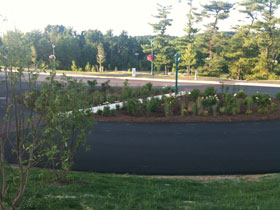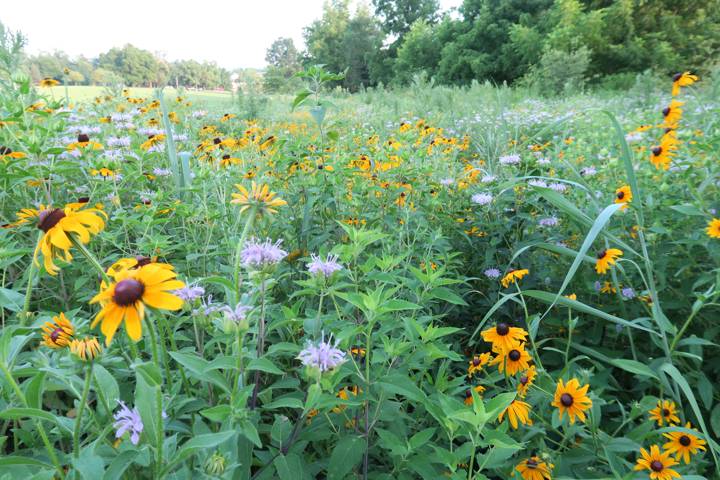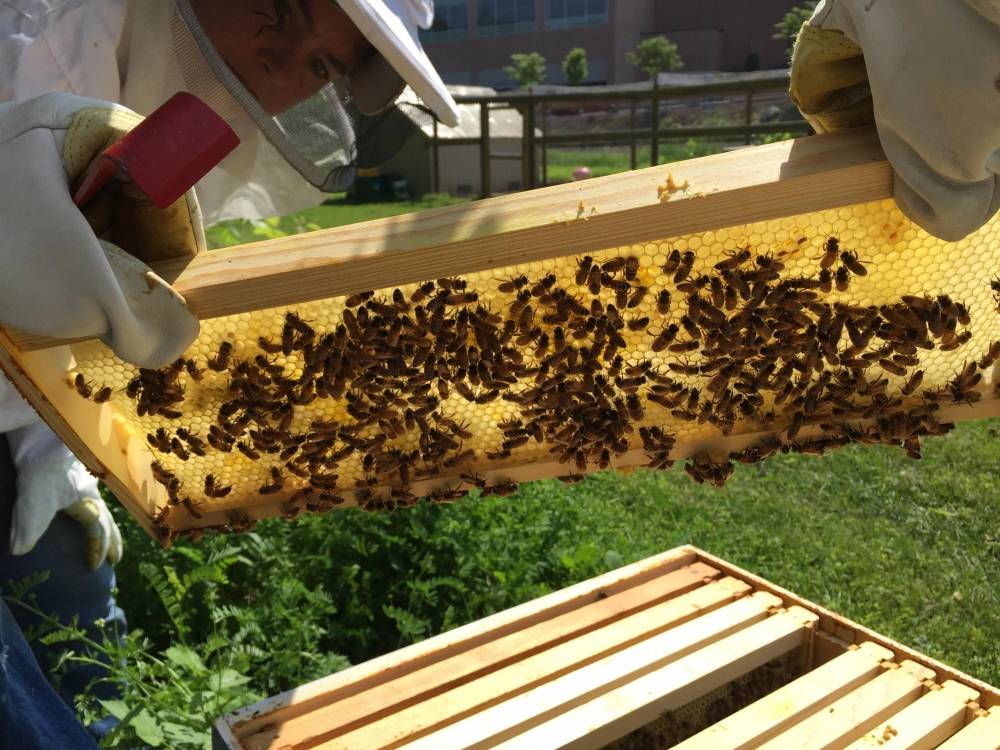Biodiversity at Messiah
Protect, preserve, and revitalize habitat through sustainable land management practices
One sign of a healthy ecosystem is its diversity and the same can be said of our campus. In caring for the biodiversity on campus, we are concerned for the vitality of various species, the restoration of indigenous ecosystems and the flourishing of diversity within human-made landscapes.
Practically speaking, our pursuit of biodiversity on campus can be seen in the use of native plants, reforestation efforts, demonstration gardens and deliberate creation of wildlife habitats.
Programs & Partners

Description
Tree Campus USA is a program of the Arbor Day foundation and helps colleges and universities around the country establish and sustain healthy community forests. In order to qualify for this certification, campuses must meet five criteria (see below). Messiah has been a Tree Campus USA member since 2011.
Criteria
- Establish a Campus Tree Advisory Committee
- Have a Campus Tree Care Plan
- Annual Budget for tree care or planting
- Annually Observe Arbor Day
- Host a Service-Learning Project devoted to Trees
Partners
Description
In 2016 Messiah University began keeping honey bees on campus as part of the Grantham Community Garden. It has been well publicized that bees and various other pollinator insects in general are threatened by habitat loss and climate change. The University's response to that threat was to bring bees on campus as an educational tool and a way to think about campuses as being a place that can provide great habitat. Our newly planted pollinator meadow is just one way to support our bees and who can complain at the added benefit of being able to harvest beeswax as well as delectable honey?
Partners
Description
In 2012, the senior class voted to help fund the development of a rain garden next to the new Calvin and Janet High Center for  Worship and Performing Arts as their senior gift project. This exciting, project was just the start. As of 2016, there are now four total rain gardens on campus (3 surround the Alumni Plaza outside of Lottie).
Worship and Performing Arts as their senior gift project. This exciting, project was just the start. As of 2016, there are now four total rain gardens on campus (3 surround the Alumni Plaza outside of Lottie).
A rain garden looks just like any other flower garden, but actually contains a strategic combination of mostly native plants, trees, and other foliage. The garden is also composed of highly absorbent soil that helps to collect and store rainwater. This allows the rainwater to slowly filter into the ground as well as be pumped into the air by the plants, cleansing it of impurities. By collecting the water, the garden also helps to prevent and minimize flooding.
Partners
Description
Through the help of a grant, students from the Biology Department, and the hard work of our campus Grounds team, the College has seen success in reforesting and restoring habitat along the back and bottom of Cemetery Hill. Between 2014 and 2016 the Biology department planted a mix of conifer and deciduous trees, seeded 1.25 acres of former lawn with a pollinator friendly wildflower mix, and built and installed bat boxes and bird houses. Additionally, the Grounds Services stopped mowing the back side of Cemetery Hill which has allowed it to turn back into a lush grass prarie.

Partners
Description
Beginning on October 1, 2016 a new software program began calculating how many sheets of paper students and employees use each day on Messiah owned copiers and printers. This information is used to certifiably reforest Messiah  University's paper consumption. New trees are planted equivalent to our paper use at reforestation projects across the globe. Currently, Messiah has chosen to focus its reforestation efforts in Madagascar, a fragile ecosystem hurt by deforestation. Look for the PrintReleaf stickers on every machine and be sure to watch the 2 minute video showing you how this program works at www.printreleaf.com
University's paper consumption. New trees are planted equivalent to our paper use at reforestation projects across the globe. Currently, Messiah has chosen to focus its reforestation efforts in Madagascar, a fragile ecosystem hurt by deforestation. Look for the PrintReleaf stickers on every machine and be sure to watch the 2 minute video showing you how this program works at www.printreleaf.com
Partners
- Messiah University Press and PrintReleaf
- Read the Messiah News article about Printreleaf
